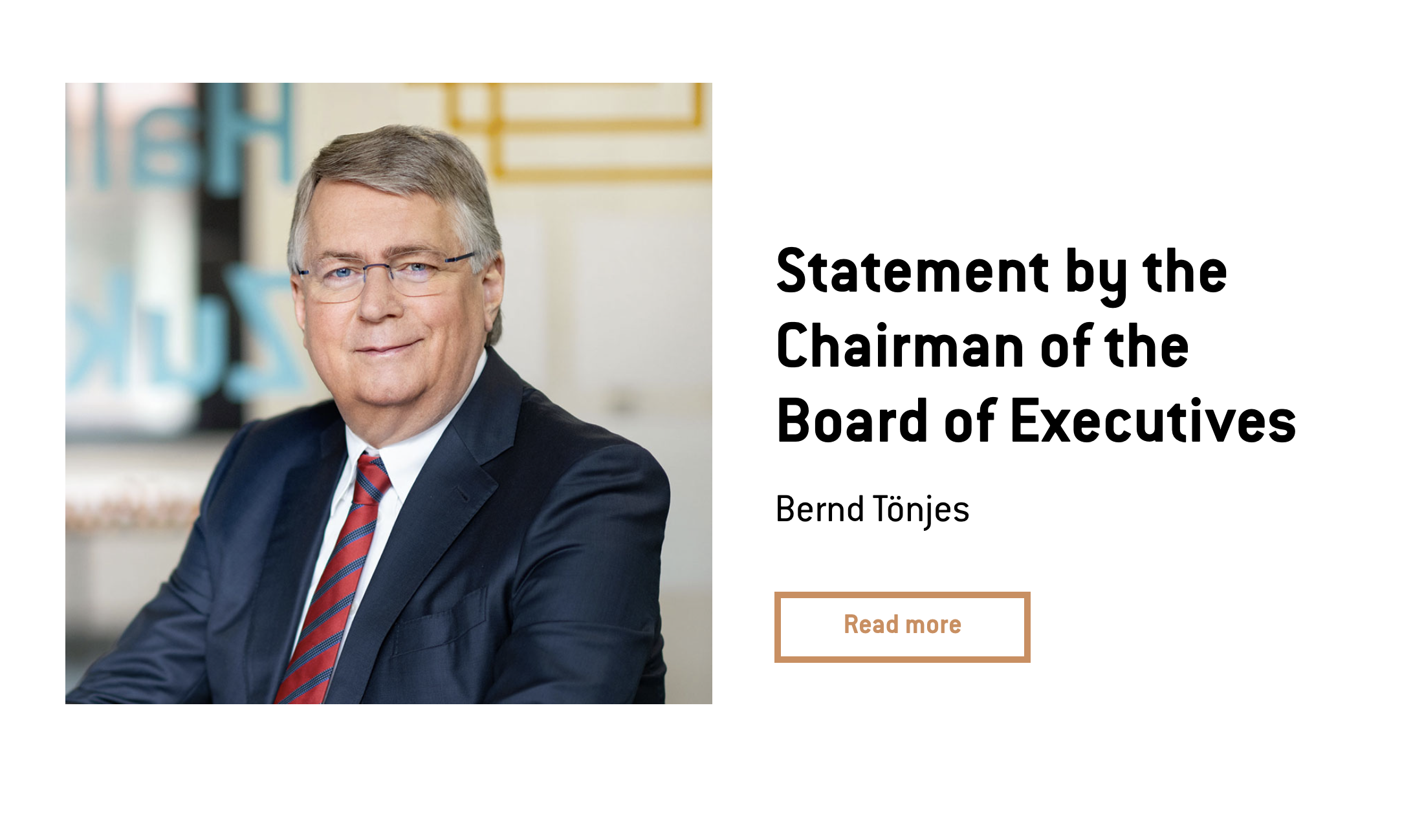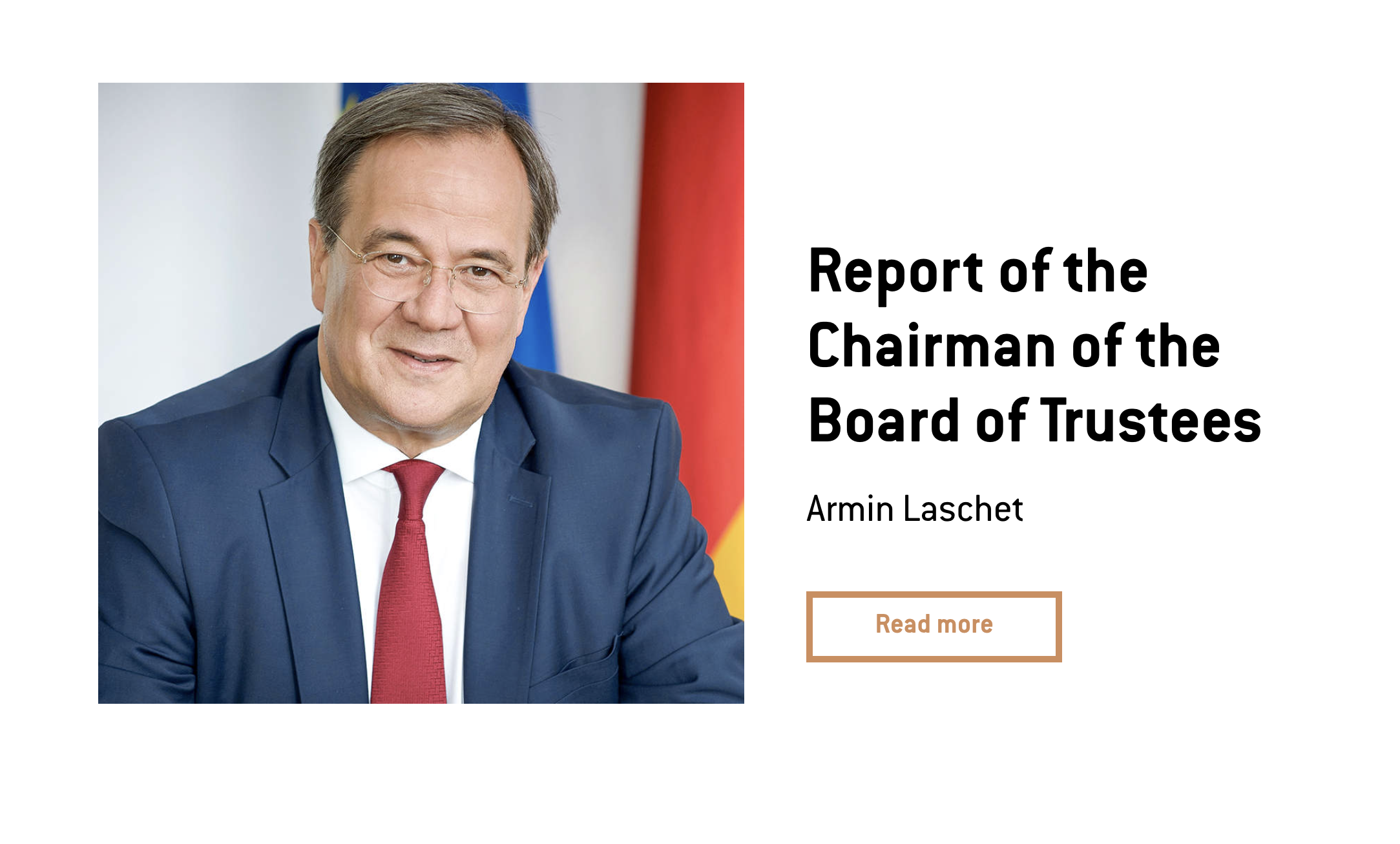2024
Financial statements
The RAG-Stiftung at a glance
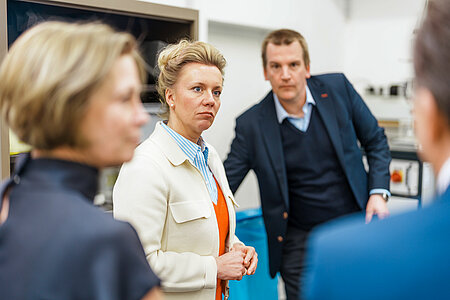
New think tank for geo-resources
The sustainable transformation of energy and raw material production requires strong thought leaders – such as the Transformationszentrum für Georessourcen und Ökologie (Transformation Centre for Georesources and Ecology/TGÖ), which is to commence its work at the start of 2028 in the Funkenbergquartier neighbourhood in Herne. From the beginning of the year onward, a large number of high-ranking figures from business and politics – including many ministers, such as Ina Brandes, Minister for Culture and Science of North Rhine-Westphalia in the spring – learned more about the status of the project. The federal state intends to participate in the future think tank by contributing a total of EUR 40 million as part of its 5-location programme. In October, the competent district government of Arnsberg pledged funding of more than two million euros for the planning phase.
An avenue is growing at Hugo
In the heart of Gelsenkirchen, at the former Hugo colliery, the RAG-Stiftung is creating a climate arboretum over the coming years. The avenue is intended to eventually comprise around 40 different trees. A common feature of all of them is their particular resilience to heat, drought, poor soils and other environmental influences. The first sod was turned in March, when four trees were initially planted. Information boards with QR codes provide detailed information about the individual tree species, the reasons why they were planted and what they commemorate. Tree by tree, a rich and varied educational trail will be created, enabling visitors to see and experience how the RAG-Stiftung lives up to its ecological and social responsibility for the region.
A wheel for sustainable development
In May, the RAG-Stiftung published a new interactive information service on its website, providing a wealth of interesting insights into the economic, ecological and social value contributed by the foundation’s work. The SDG wheel complements the RAG-Stiftung’s sustainability strategy, presenting comprehensive facts, figures and data that monetize the contribution the foundation makes to the United Nations’ Sustainable Development Goals (SDGs) that are especially important for it. The social benefits of selected key projects within the Foundation Group and the support for education, science and culture are also illustrated here by way of example.
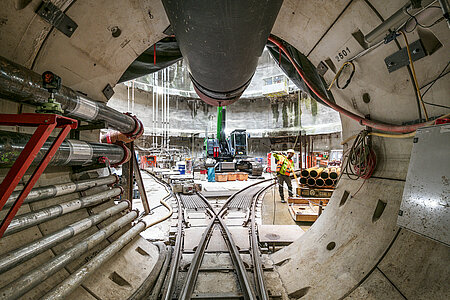
Breakthrough at the central shaft
In Ibbenbüren, the RAG-Stiftung is financing RAG’s largest investment project to date: a 7.4-kilometre pit water canal at a cost of more than EUR 200 million. Once it is completed, the energy-intensive and costly process of pumping pit water will be completely eliminated. The water will then flow without pressure to the Gravenhorst treatment plant and from there into the Aa. Pump-free operation reduces carbon emissions and saves energy equivalent to the total consumption of almost 13,000 households. In June, the project achieved an important milestone with the breakthrough of one of two sections.
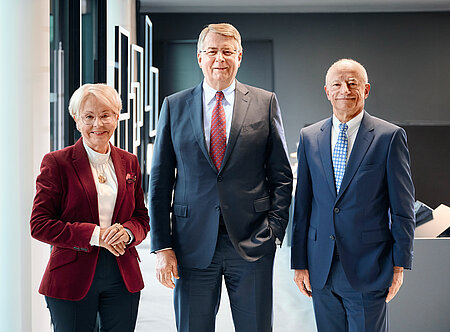
The Board of Executives reported on the financial year 2023 at the annual press conference on 11 June and provided information on ongoing developments (from left to right): Bärbel Bergerhoff-Wodopia, Bernd Tönjes (Chairman) and Dr. Jürgen Rupp.
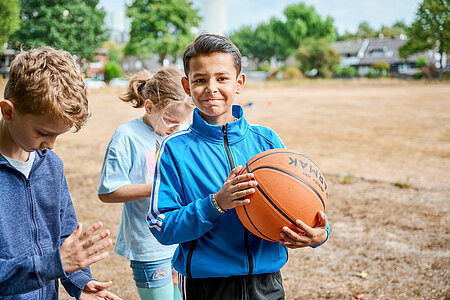
Quinoa School expands network
School helps spread equality of opportunity: that, in a nutshell, is the objective of the Quinoa School in Herne. The flagship project sponsored by the RAG-Stiftung turned two years of age in the summer. Pupils from socio-economically disadvantaged neighbourhoods receive targeted support there on their path to successfully completing their schooling and moving on to further education. And Quinoa also accepts young people who have been rejected by other schools. There has been an excellent response to the concept since the school opened. In July, further cooperation agreements on career guidance and follow-up support were concluded with companies based in Herne.
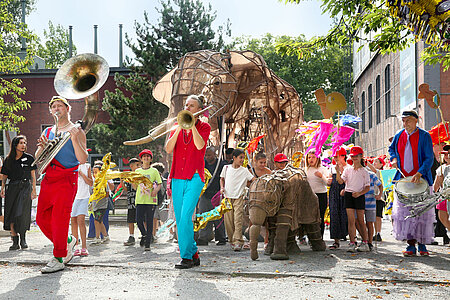
Ruhr Triennale inspires with “Celebration Parade”
The RAG-Stiftung has supported the Ruhr Triennale’s education programme since 2015. The “Young Triennial” aims to improve equality of opportunity for children and young people in the Ruhr region through cultural education. The highlight in August was the Celebration Parade, which focused on endangered species. Of course, real elephants and other animals were not seen roaming the grounds of the UNESCO World Heritage Site Zollverein, the Westpark in Bochum and the Duisburg-Nord Landscape Park, but life-size puppets. Models built in advance by young creators were also brought to life in impressive fashion in the individual parades.
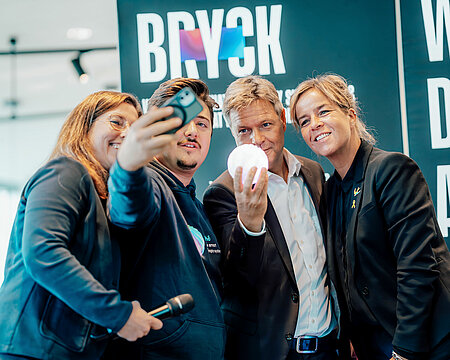
The future “Made in Essen” makes a big splash
Since 2022, around 140 start-ups with over 1,700 employees have benefited from the programmes and services offered by the BRYCK innovation hub and future factory initiated by the RAG-Stiftung. In September, Vice-Chancellor and Minister for Economic Affairs Robert Habeck and North Rhine-Westphalia’s Minister for Economic Affairs Mona Neubaur experienced at first hand the innovative power of the promising tech start-ups concentrated in the heart of Essen’s city centre. The talks also focused on establishment of the flagship project “BRYCK Startup Factory” in close cooperation with the universities of Dortmund, Bochum and Duisburg/Essen as well as with member companies of the Initiativkreis Ruhr economic development organisation.
700-page RUHRGOLD
In October, the RAG-Stiftung opened a treasure trove: The coffee-table book RUHRGOLD presents over 300 jewels of the Ruhr region on around 700 pages. From art and culture, architecture and nature, to business and science: The splendid tome which the RAG-Stiftung co-financed celebrates the transformations of the former hard coal mining districts in opulent images and with inspiring guest contributions. Numerous high- profile guests from politics, business and society attended the inspiring book launch at the Colosseum in Essen.
#UnserReWIR – Ideas for democracy
In November, the RAG-Stiftung sought the best ideas to support democracy in the Ruhr region. For a whole weekend, young people aged between 14 and 18 honed their concepts at the Zollverein UNESCO World Heritage Site in Essen. The teams were vigorously supported by influencer Diana zur Löwen, who enthusiastically moderated the hackathon. A high-calibre jury including André Kuper, President of the North Rhine-Westphalia State Parliament, and Dorothee Feller, North Rhine-Westphalia’s Minister for Schools and Education, awarded the prizes to the three happy winning teams. The RAG-Stiftung is earmarking up to EUR 150,000 to implement their ideas.
Find out more about our contribution to the SDGs
Our info tool on the United Nations’ Sustainable Development Goals (SDGs) provides extensive background knowledge on the economic, environmental and social impact of the RAG-Stiftung and and its associated companies. That is done with reference to seven focus SDGs on which the RAG-Stiftung concentrates pursuant to its articles of association. The SDG tool also provides an exclusive insight into specific key figures on the RAG-Stiftung’s contributions to society, based on gross social value added and employment effects.
